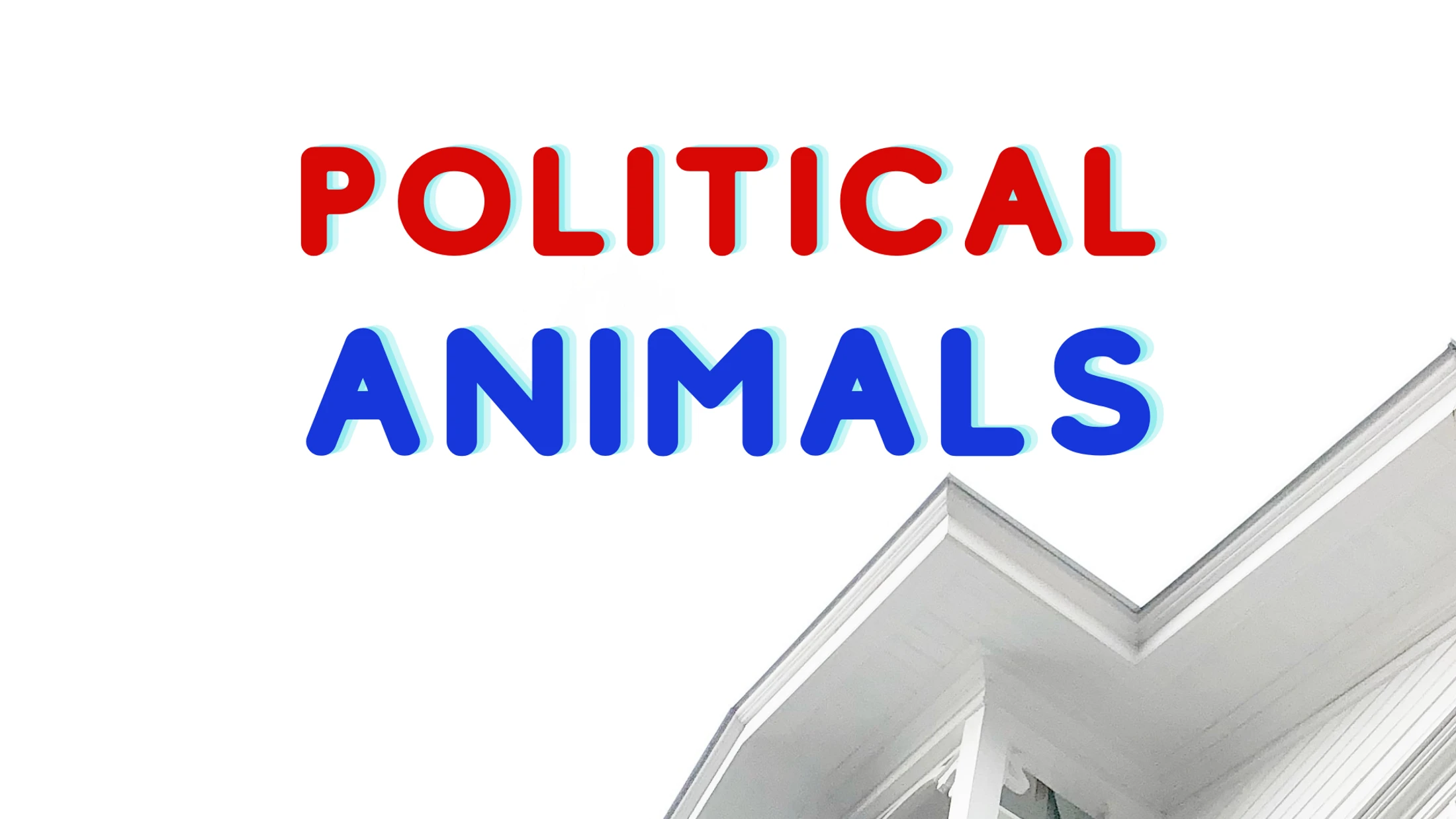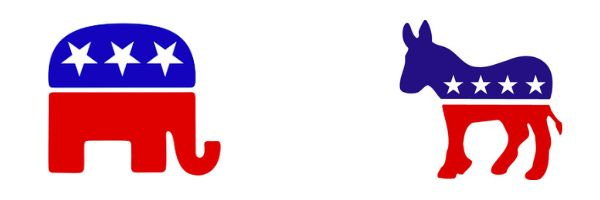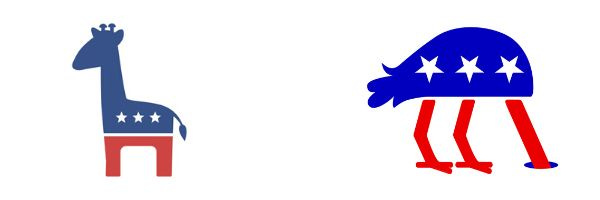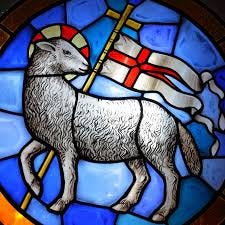Political Animals

Politics is about people.
It's is what we call “managing our common life together.1”
Engaging in political processes and discussions is a key was we love our neighbor as our self.
But what posture should we take towards politics?
I submit that there are three common postures towards politics that are less-than-ideal or downright harmful and one posture that, though costly, is the wisest, most loving posture we can take.
I call the three less-than-ideal postures the Partisans, the Avoiders and the Warriors.
Below I use one or more creature to illustrate the nuances of each posture2.
Partisans - Elephant / Giraffe

Partisans give full allegiance to a political party.
In modern America, the two primary parties are represented by the donkey and the elephant.
The donkey says it is committed to progress, moving beyond the evils of our past.
The elephant says it is committed to conservation, preserving the good from our past.
While these views are not mutually exclusive3, partisan power brokers often leverage differences between the parties to create animosity & division in order to garner more power.
Occasionally partisans may be true believers in a political ideology. However, the constantly shifting ideals in both modern parties show that more often than not, faithful partisans tend to ‘go with the flow’ of their party, maintaining allegiance to the elephant or donkey and, as a result, become tools of their party and enemies of the other4.
By making the “the other team” an enemy to fight or avoid, Partisans often fail to love their neighbor as their self.
Avoiders - Ostrich / Giraffe

Avoiders steer clear of political engagement, though for different reasons.
The ostrich would rather stick their head in the sand than deal with the messy, painful reality of politics. They may do so out of a sense of futility (“my vote doesn’t matter”), or because they view politics as inherently evil (“all politicians are corrupt").
The giraffe, like the ostrich, is disengaged from politics; but for a different reason. Giraffes feel that they are "above it all," often mocking the partisans' little squabbles' and rolling their eyes at the warriors. The Giraffe refuses to stoop to the "dirty business" of politics. They believe that it is beneath them.
Avoiders often fail to see how politics impacts their neighbors, especially those who are pushed to the margins. By avoiding politics, avoiders fail to love their neighbor as their self.
Warriors

Though warriors often disguise themselves in partisan garb, their methods reveal they are a different beast entirely.
Whereas partisans focus on taking power in order to govern or push a specific policy perspective, warriors focus on domination.
Warriors are frustrated by the compromising partisans and the unengaged avoiders.
Warriors demand action.
“We're at war”, they assert, “we must rise and fight!”
The goal of the warrior is not only political power; it is total domination of the culture and the eviction or destruction of "the other."
Warriors maintain power by fighting to dominate their enemies. As such, they fail to love their enemies, and thus fail to love their neighbor as their self.
-----
A Better Way?
Those who take on these postures, while occasionally noble and thoughtful, usually fail to bring blessing, unity and flourishing to a community. More often than not, they bring pain, destruction, loss of relationships, disunity and sometimes violence and death.
So, what posture is the wisest and most loving?
Which posture allows us to best love our neighbor as our self?
Servants - Lamb

Like Jesus, servants seek to use their power in service of others, seeking to bless, even at great cost 5.
In the most politically charged text in scripture, Revelation, we see that the risen King Jesus is imagined in a politically subversive way. Contrary to expectations, he is not imagined as a majestic eagle, like Rome, nor is he imagined as a Lion, like Babylon.
Much to our surprise, the conquering King is imagined as a slain-then-risen lamb 6.
Jesus, the lamb, conquers the dragon not by military weapons or fear-mongering force, but through self-sacrificing resurrection power.
Followers of Jesus are called to live like him, the victorious lamb, taking on the form of a servant 7, using our power in the service of others.
Jesus calls his followers to abstain from grasping for worldly power or leveraging our power over others. That is what the Kingdoms of this World do 8 and it leads to more pain, fracture and disunity.
Jesus calls his people to take the the posture of the Lamb by leading with
Hospitality,
Humility,
Service,
Longsuffering,
Grace,
Forgiveness.
Selflessness,
and love.
Jesus calls us to take up our cross and follow him, using his methods, taking his posture, relying on his resurrection power as we engage in politics.
While the posture of the Lamb seems weak and foolish9 to Partisans, Avoiders and Warriors, it is ultimately through the Lamb that we find redemption and restoration for the world.
1 I am borrowing from Vincent Bacote. Check out his book The Political Disciple.
2 I am taking much of this from Jim Mullins and Chris Gonzalez.
3 Both are forms of Classic Liberalism. See Political Visions & Illusions: A Survey & Christian Critique of Contemporary Ideologies by David Koyzis.
4 I borrowed this concept from Brian Zahnd.
5 Matthew 20:28
6 Revelation 5:9, John 1:29
7 Philippians 2
8 Matthew 20:25
9 1 Corinthians 1:23
10 2 Chronicles 20:15
11 Isaiah 27:1
